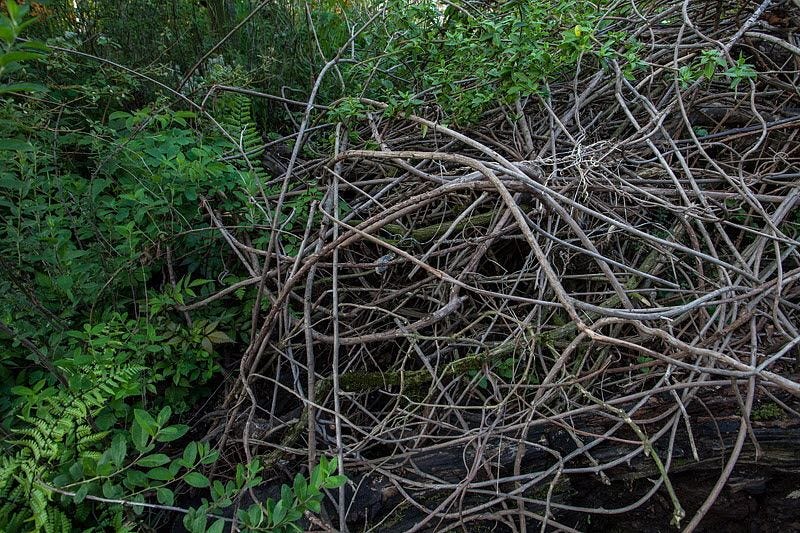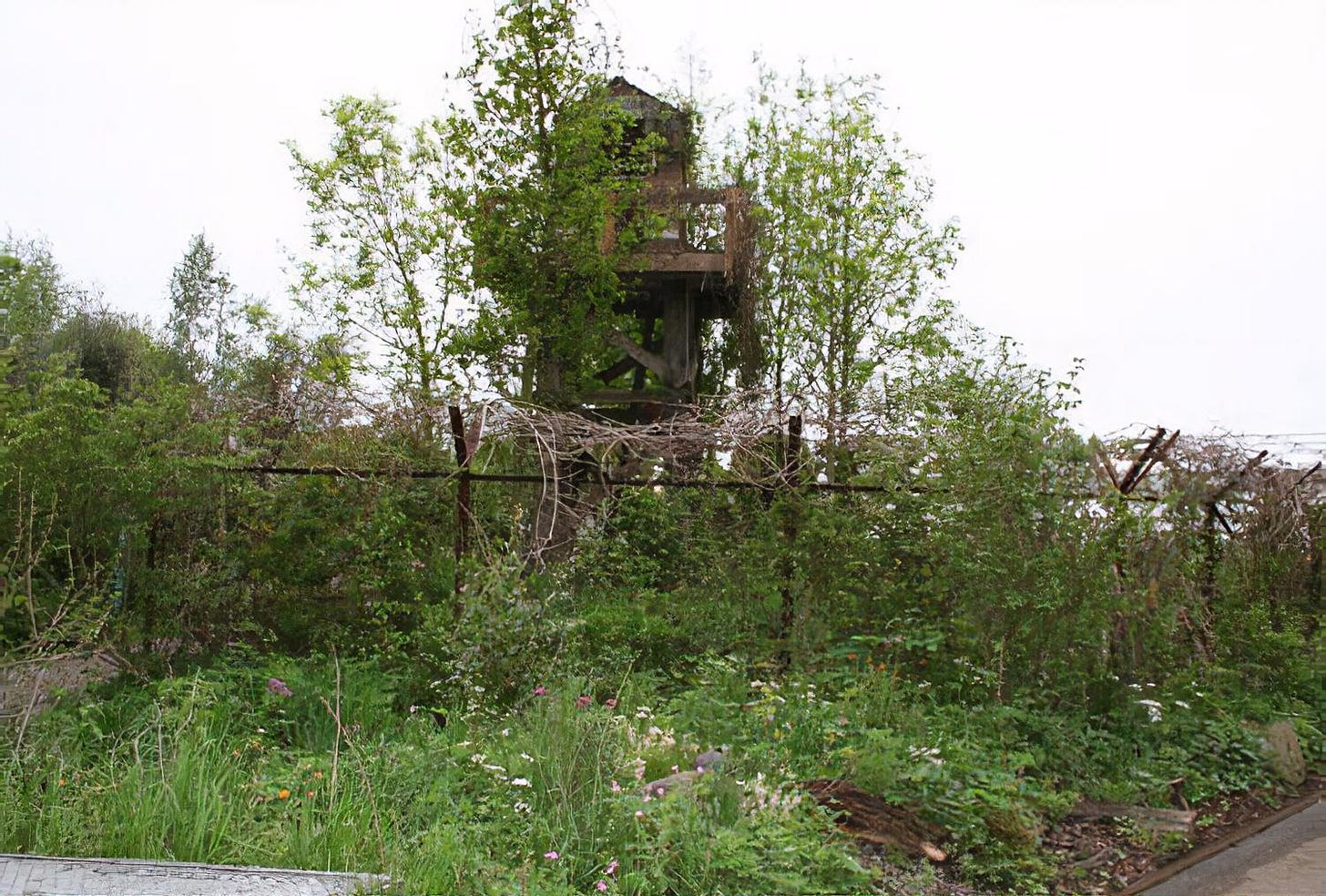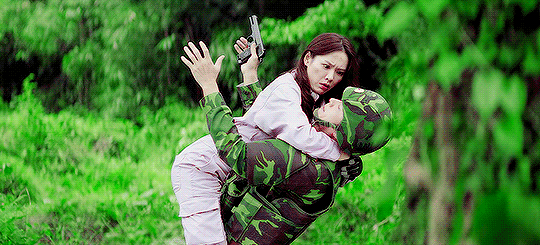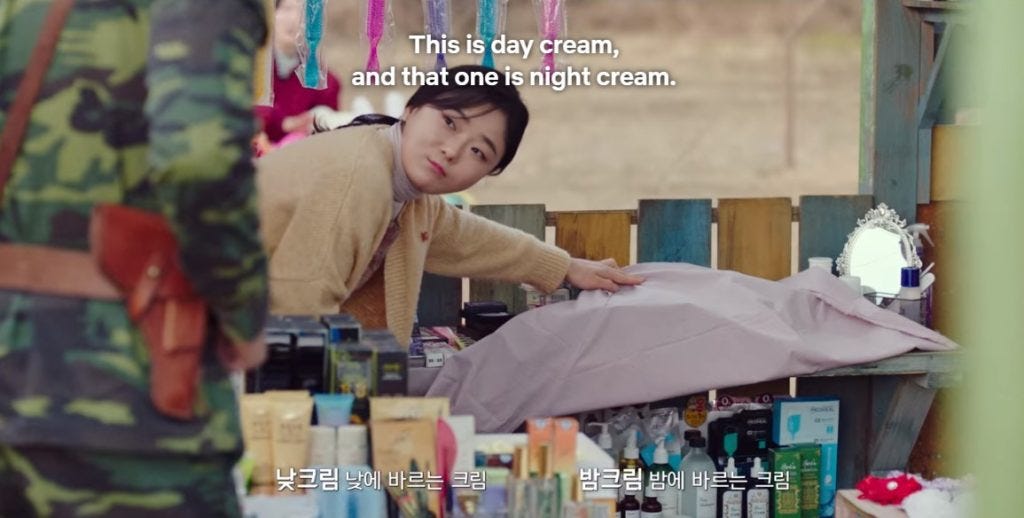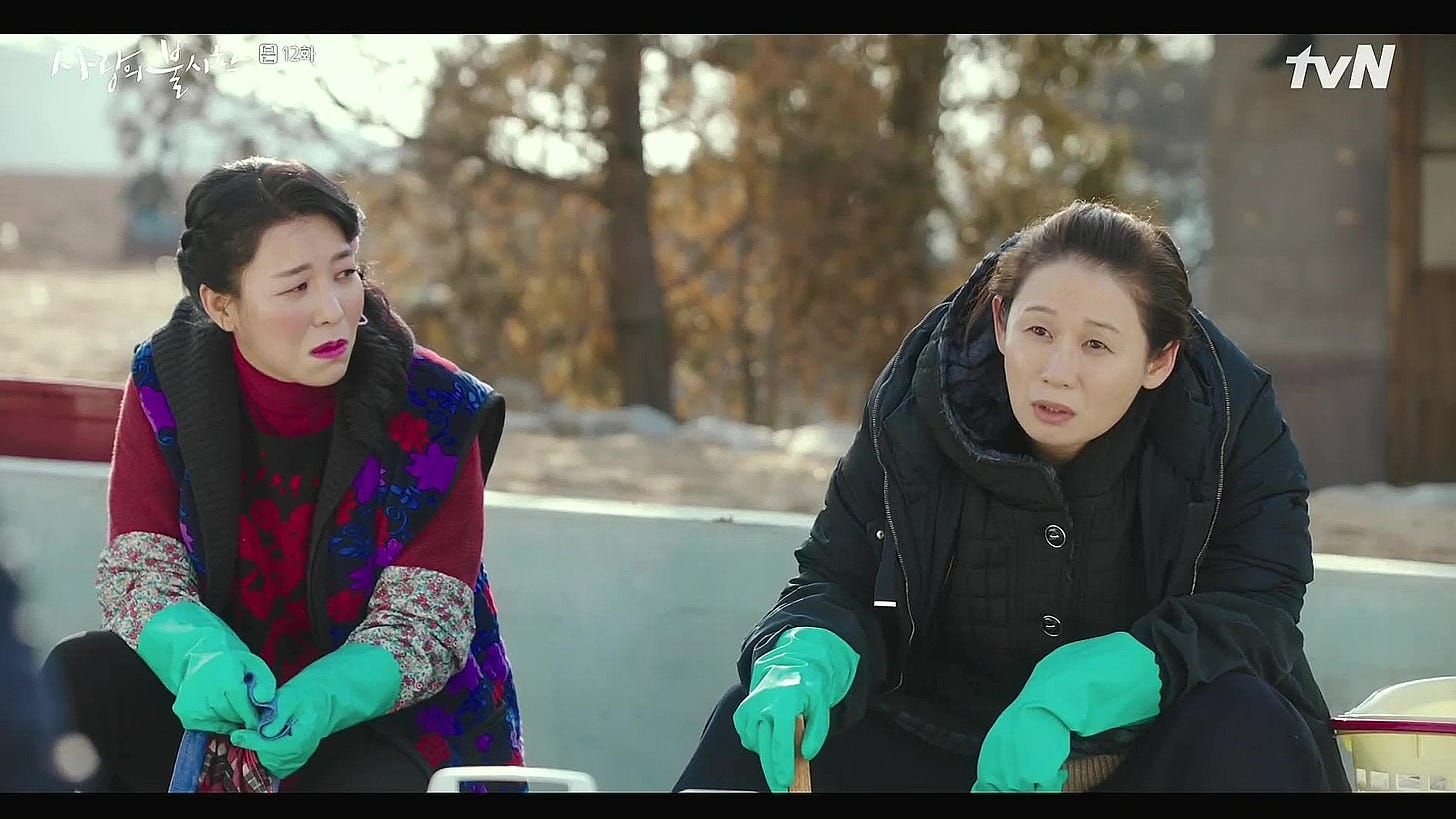Barbed Wire into Trellises, Swords to Ploughshares & Why I know How to say "I'm Fine" in Korean (very stoically)
What K-drama's taught me about love leading to justice, also a handful of book recs!
This is not a tangle of barbed wire. It’s a tangle of endangered Korean plant life, slowly reclaiming the 155 miles of demilitarized zone (DMZ) along the 38th parallel that keeps North and South Korea divided. Where the memory of war and violence hovers, in this strip of land seemingly frozen forever in a stalemate—a testament to the impossibility of reconciliation—nature has kept moving. As Sarah Kyoungah White writes for Ecstatic, remote cameras in this accidental nature preserve have captured creatures like wildcats and yellow throated martins rarely seen elsewhere.
Also, I should say, this is not a photo of the DMZ. It is a piece of art by Jihae Hwang titled “Quiet Time: DMZ Forbidden Garden” based on her trip to the DMZ and what she saw. It won the 2012 London Chelsea Flower Show. The landscape artist created it in memory of the 60th anniversary of the Korean War. I love how you sort of discover what you’re looking at the longer you look. In other pictures you can see the details emerge: lost boots, barbed wire turned into a trellis for a vine, a watch-tower turned into a tree.
I can’t help but think of swords being beaten into ploughshares. But here, it’s a grace. We haven’t figured out how to do it yet, how to beat these swords into ploughshares. But here, nature did what we haven’t done for ourselves.
My journey to this Chelsea Flower Show piece and this beautiful intersection of beauty and justice, you ask? We will now go from the sublime to the basics of capitalism.
Netflix. Or, more specifically, the fact that because of the US writer’s strike, the Netflix algorithm has no new American content and so got really excited that I watched Attorney Woo a few months ago, and started recommending Kdramas to me. Enter: the most bingeable, heart-breaking, funny (like LOL funny), human, 22+ hours of your life: Crash Landing On You
I cannot be chill about this show. It’s a drama with a completely insane premise. (The Premise: A South Korean Billionaire has a paragliding accident in a freak low budget CGI tornado, and ends up on the other side of the DMZ. After accidently heading the wrong way, she ends up in North Korea, and the soldier she collided with is tasked with trying to secretly get her back so his platoon doesn’t get in trouble).
It’s got romance, it has deep political questions about where your loyalties lie, it has people in impossible situations trying to be human, it has action, it’s super funny and super sad. It’s entertaining.
I don’t have any Korean friends. I don’t have any Korean-American friends. Korea, and the division of North and South Korea were just spots on a map I never thought about. The phrase “the 38th parallel” was meaningless to me. I never cared about the reunification of North and South Korea, what it meant for whole families to be arbitrarily separated and sealed off from each other. I never cared about the fact that America has it’s largest international military base in South Korea (only recently giving up their prime real-estate in the centre of Seoul). Intellectually, I knew about North Korea. But I didn’t care about The Topic Of Reunification.
Yet I suddenly found myself caring about two fictional characters, enraged at this arbitrary boundary between them. I found myself intrigued by a whole spiral of new questions about daily life in North Korea: how do under-the-counter sales of South Korean DVDs and beauty products work in North Korea?
Who are these women who run the neighbourhoods and keep the neighbourhood following the party-line?
Do South Koreans actually like fried chicken and beer as midnight snacks?
Are K-dramas are actually big in North Korea?
I mean, the questions are endless.
I have since expanded beyond K-dramas to books and learned the answers to these questions. I’ve read about how Korean Christians in this generation feel about reunification. Let me be clear that I am basically an online tourist. But I’m actually paying attention in a small way for the first time to something that matters to millions of people.
These articles were always there. They just swished by me in a wave of noise, because the world is so noisy and meaningless until you love something.
And good TV is really good at getting you to love something.
I think perhaps that’s the greatest gift that beauty brings to the work of justice. It helps awaken our love. The work of justice is hard. It involves discomfort. It involves sacrifice. It is painful. It is complicated. When you’re trying to work together with people to try and solve big problems like racial injustice or gender discrimination or climate change, or what to do about US involvement in Korea, you get a whole lot further when people actually care.
The work of justice and reconciliation does not end with joint orchestra concerts, or Kdramas about the DMZ, or the Ndlovu Youth Choir making it to America’s got talent. Perhaps too often, especially as Christians, it’s easier to stop at the joint prayer meeting and call it reconciliation. But equally, the work of justice cannot be sustained, maybe can’t even begin, unless we are deeply invested in appreciating and honoring the humanity of other people.
And what’s more human than being ignorant of an entire country and culture and then getting sucked into 22 hours of tension between two gorgeous actors separated by a Korean dictator and their own dang self-sacrificing natures and subsequently downloading Korean on Duolingo?
Just Beautiful Links:
A collection of articles, books & music I’m enjoying about beauty, justice, or both! This is just for paid subscribers, as a way to say THANK YOU for making this essay available to everyone through their giving.
Keep reading with a 7-day free trial
Subscribe to Just Beautiful to keep reading this post and get 7 days of free access to the full post archives.


